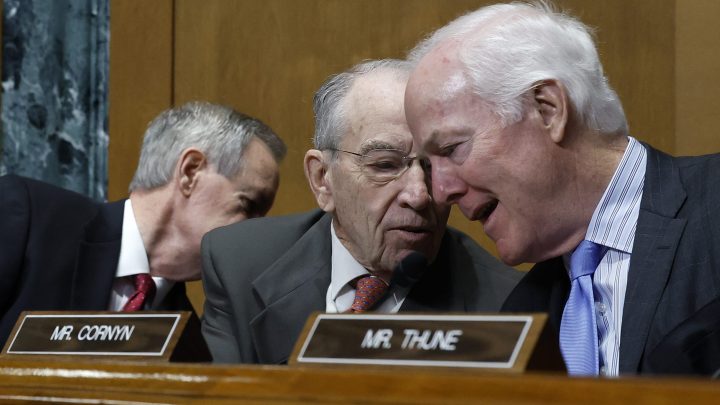
Are bank supervisors, or bank rules, too lax?
Are bank supervisors, or bank rules, too lax?

Let the buck passing begin! The fights have already started in Washington, D.C., and California over who dropped the ball and how when it came to the problems at Silicon Valley Bank and other precarious financial institutions.
One of those debates concerns whether SVB’s meltdown was a regulatory or supervisory failure. As politicians, lobbyists and interest groups take sides, it’s worth noting that there is a difference between the two. And the type of failure seen so far matters for what comes next.
So, who didn’t do their job right? Danielle Zanzalari, who teaches economics at Seton Hall University in New Jersey, put the question in a more academic way.
“Was it a failure of regulators and not supervising this institution long before they failed?” she said. “Or was it the fact that they were meeting the regulatory rules, but SVB perhaps needed tighter regulation?”
A regulatory failure would mean there needs to be better laws or rules to prevent this from happening again. To decide whether this was a regulatory or supervisory failure, it helps to know what bank supervisors do.
“You evaluate the adequacy of the bank’s capital, you evaluate the asset quality … and their liquidity and their ability to manage things like credit risk, interest rate risk, those types of things,” said Jim Cooper, the CEO of the Conference of State Bank Supervisors.
Most people don’t pay much attention to all of this unless something goes wrong. “If the supervisory side of things is doing things well, you would never hear about it,” according to Kathleen Hanley, who teaches finance at Lehigh University in Pennsylvania. She used to work as a senior economist at the Federal Reserve.
Hanley said that unlike supervision, the regulatory side of banking is fairly visible.
“You hear about the regulatory side because banks or other regulated entities often … engage in media and lobbying activities” that bring those regulatory actions into public view, she said.
Whether this was a regulatory failure, a supervisory failure or both will determine how to move forward. Is there a need for tighter regulations on banks? Or more supervisors, with better training and expanded powers? Or all of the above?
There’s a lot happening in the world. Through it all, Marketplace is here for you.
You rely on Marketplace to break down the world’s events and tell you how it affects you in a fact-based, approachable way. We rely on your financial support to keep making that possible.
Your donation today powers the independent journalism that you rely on. For just $5/month, you can help sustain Marketplace so we can keep reporting on the things that matter to you.


















